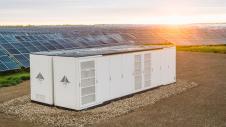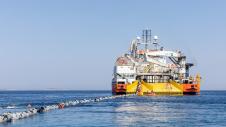PPC’s ultimatum for industrial clients expires at the end of February without a solution appearing on the horizon. As PPC remains fixed on its proposals, the industry speaks of "casus belli", in regards to the terms set by PPC, while the ministry has clarified that it will not take part in the process but proposes an alternative plan that will be implemented, however, in the long run.
As reported by Business Daily, there will be an unofficial extension to the existing contracts until the end of talks, which have been extended for an unknown period of time. For its part, industry demands a final solution to the issue, while noting that PPC in the letter it had sent to the industries reserves the charge the difference in costs retroactively from January 1, 2021, when the agreement is made. This would be the final blow, leading industrial companies to shut down, stress industry participants.
Industrial firms reject the changes proposed by PPC in relation to the abolition of the special price for the night tariff - a measure weighing particularly hard on steel and cement companies.
Especially in these two sectors, 80% of the units work at night, on weekends and holidays, in order to take advantage of the lower prices and on the other hand to ensure the planned, stable load for PPC and the power system.
In addition, with the proposals of PPC, volume discounts are abolished and an increase clause is introduced, while energy-consuming consumers are asked to commit for the amount of their consumption and, if on a monthly basis it is less than 2%, then PPC will have the right to claim "damages".
Last week, Energy Ministry sources stressed that PPC is responsible for negotiations with industrial companies. The state, sources add, as a key shareholder of PPC, of course wants the company to do well, but on the other hand it also wants to take a series of measures to help in a transparent way the productive base of the country.
In this context, the ministry is examining a strategy for bilateral RES and consumer contracts with a special emphasis on productive sectors of the country, such as industry, tourism and catering where energy costs exceed 20% of production or operational costs.
According to the data so far, such a mechanism should be created in a way that will be transparent and fully compatible with EU requirements, and could be operational by 2022.
Market sources, however, point out that if such a measure worked, it would probably provide a solution from 2023-2024. However, the problem remains today, in 2021 and 2022, when under the current conditions, industries in the country will face enormous cost pressure. The ministry’s broader goals, however, are for electricity prices for industry and other productive sectors to reach the levels of corresponding European levels.
Prices are far from those seen in Europe. According to the latest data from IOBE, the wholesale price in Greece is consistently much higher than in European markets. In fact, it seems that prices are following upward trends since April 2020. In December, the price in Greece was 3 times higher ( 64.4 euros / MWh) the system price on the Nord Pool energy exchange (20.1 euros / MWh).
Speaking to Athens Energy Dialogues, the president of the Union of Industrial Energy Consumers, Antonis Kontoleon, spoke out against PPC for manipulating prices through the target model, pushing up prices by up to 40% with new tariffs in industries. As Kontoleon noted, this is despite the fact that PPC with the participation of hydropower is the big winner of the price spike in the Balancing Market. Speaking previously to Business Daily, Kontoleon had referred extensively to the issue of market malfunctions but also to RAE's interventions that industrial companies see as being insufficient.









